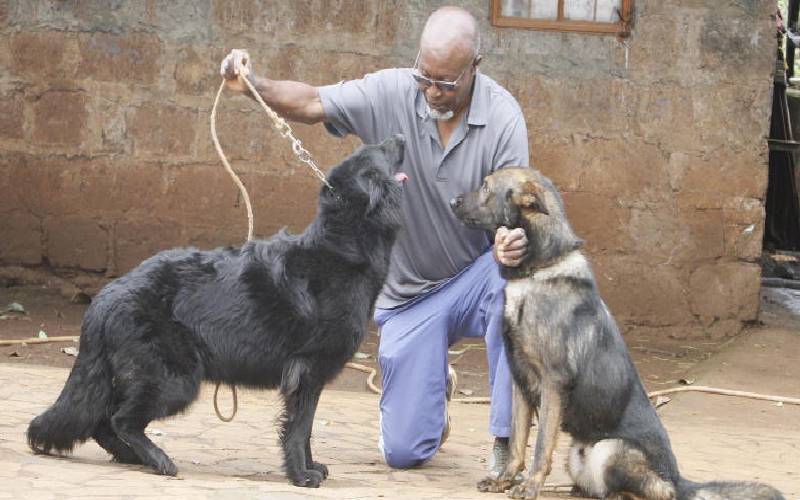×
The Standard e-Paper
Smart Minds Choose Us

Kiuna and his bred Germany Shepherd dogs at his home in Kangemi. [ Jenipher Wachie, Standard]
Chege Kiuna’s journey as a dog breeder began over three decades ago, a time when black dog breeders and trainers were rare.